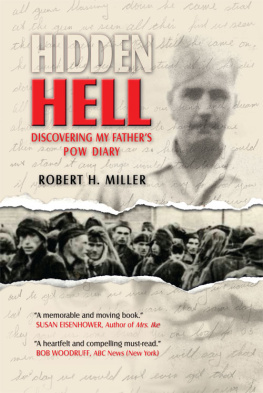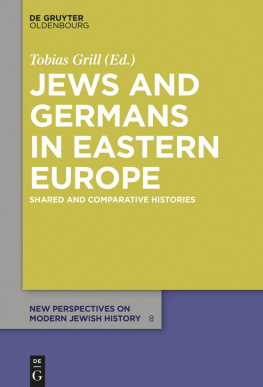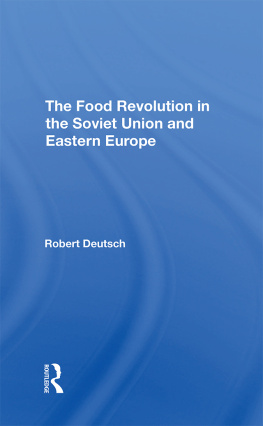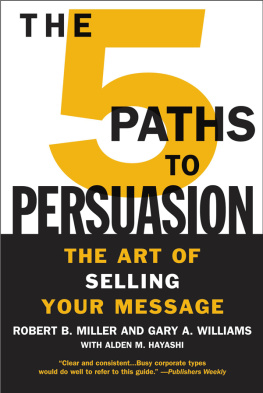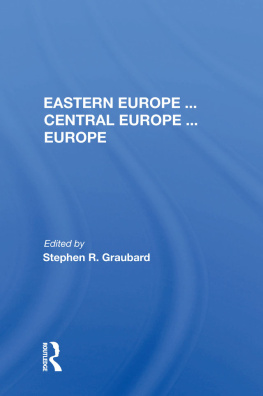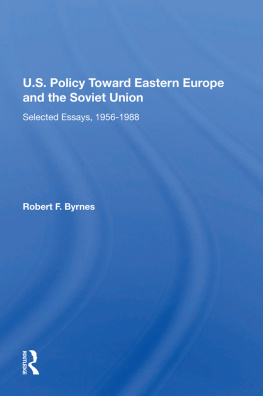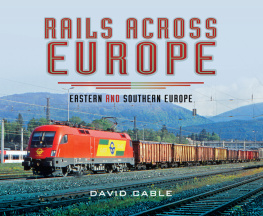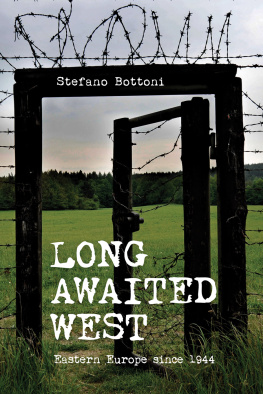BIOGRAPHICAL RESEARCH IN EASTERN EUROPE
Biographical Research in Eastern Europe
Altered lives and broken biographies
Edited by
Robin Humphrey
University of Newcastle upon Tyne, UK
Robert Miller
Queens University, Belfast, UK
Elena Zdravomyslova
Centre for Independent Social Research and European University, St Petersburg, Russia
First published 2003 by Ashgate Publishing
Reissued 2018 by Routledge
2 Park Square, Milton Park, Abingdon, Oxon OX14 4RN
711 Third Avenue, New York, NY 10017, USA
Routledge is an imprint of the Taylor & Francis Group, an informa business
Copyright Robin Humphrey, Robert Miller and Elena Zdravomyslova 2003
All rights reserved. No part of this book may be reprinted or reproduced or utilised in any form or by any electronic, mechanical, or other means, now known or hereafter invented, including photocopying and recording, or in any information storage or retrieval system, without permission in writing from the publishers.
Notice:
Product or corporate names may be trademarks or registered trademarks, and are used only for identification and explanation without intent to infringe.
Publishers Note
The publisher has gone to great lengths to ensure the quality of this reprint but points out that some imperfections in the original copies may be apparent.
Disclaimer
The publisher has made every effort to trace copyright holders and welcomes correspondence from those they have been unable to contact.
A Library of Congress record exists under LC control number: 2002025873
ISBN 13: 978-1-138-72218-7 (hbk)
ISBN 13: 978-1-315-19374-8 (ebk)
This book arises out of the work of the Biographical Perspectives on European Societies Research Network of the European Sociological Association (for particulars and contact addresses see www.valt.helsinkifi/esa/biog.htm ). Under the chairmanship of, first, J. P. Roos of the University of Helsinki and then, more recently, Bob Miller of Queen's University, Belfast, this research network has been responsible for lively and well-attended workshops and conference streams at St Petersburg (1996), Essex (1997), Amsterdam (1999) and Helsinki (2001). One feature of all these meetings has been the contributions from those who had researched aspects of the rapidly changing social context in Eastern Europe and Russia. As we mention in the opening chapter, the coincidence of 'biographical turn' in the social sciences with the dramatic social, economic and political upheavals taking place in the eastern half of Europe at the close of the twentieth century meant that a highly appropriate methodological perspective was employed extensively for the exploration of how people were adapting and realigning their lives in response to a profound historical watershed.
This book brings together the work of many of the most advanced and active biographical researchers working on Eastern Europe, and presents also the work of many authors who have published extensively in their own languages but who have had less opportunity to disseminate their work more widely in English. The authors in this volume come from nine countries across Europe and the research on which the chapters are based was conducted in seven different languages.
Although all the draft chapters were delivered in English, major editorial issues were raised through the translating and copy-editing of the texts. Particularly careful attention has been paid to the translating of quotations, as in sociology these are not simply pieces of text or dialogue, but sequences of data. Great care was taken throughout the editorial process to balance the sometimes competing demands of maintaining authenticity and of presenting the texts in clear and idiomatic English. We acknowledge the immense help we received in this process from Michael Avton, a longstanding friend of one of the editors and a meticulous professional copyeditor of academic texts. He can be reached through the website of his company, www.alembic.info . We recommend him without reservation!
This book also would not have been possible without the new technology that is transforming our working lives and shrinking the world by making communication fast and easy. Email, then, has provided us all with the means by which we have sent drafts back and forth and asked and responded to questions swiftly. Without it, the task of editing this book would have been immeasurably more arduous probably too arduous to contemplate!
For help with the preparation of the camera-ready copy of this book we thank Richard Nowley, from the Staff Development Unit at Newcastle University, who was always ready to provide the expert support and guidance that were needed regularly towards the end of this project.
We all have personal thanks to make: Robin would like to thank Jane, for her patience, support and understanding, and his daughter Rosie, who interrupted the work on this book many times and who enriched and complicated the editorial process in equal measure! Bob would offer thanks to Jo Campling, who helped find this book a publishing home, and Elena to Marina Badkhen, who translated several Russian chapters.
One final comment: on a wintry night in Durham City, in the North East of England, in the early 1980s, Robin attended a talk given by the radical historian and campaigner E. P. Thompson. He was arguing for European Nuclear Disarmament, and Robin remembers being greatly enthused by his vision of a thawing of the Cold War and a unification of East and West Europe. 'Visionary but a little idealistic', he thought at the time. The fact that now he has collaborated on a book spanning nine European countries from what was both East and West Europe and has edited the contributions with a Russian and a North American, albeit one who lives and works in Northern Ireland, gives him enormous satisfaction and acts, in a small way, as testament to the scope of E. P. Thompson's political imagination and to the courage and determination of all those who have risked so much to bring his vision considerably closer to a reality than it was twenty years previously.
Aili Aarelaid-Tart is an Assistant Professor in the Department of Sociology at Tallinn Pedagogical University, Estonia. She started to take an interest in biographical research in 1996, at first interviewing Estonian intellectuals about their lives and mentalities during the period of Soviet occupation. This fieldwork was concluded in the book Still Thinking about Culture, which was published in Estonian in Tallinn in 1998. At the moment she is working on comparing the life stories of Russian inhabitants of Estonia and Estonian exiles in Sweden. The goal of this work is to find out more about the different ways of acculturation of ethnic diasporas under totally opposite political systems. She is a member of the board of the Biographical Perspectives on European Societies Research Network of the European Sociological Association. E-mail: aarelaid@iiss.ee
Vladimir Andrle was, until September 2002, a Lecturer in the Department of Sociology, University of York, UK. He is the author of Managerial Power in the Soviet Union, 1976; Workers in Stalin's Russia, 1988; and A Social of History of Twentieth-Century Russia, 1994. While all these earlier works are based on applying analytical frameworks of qualitative sociology to textual materials that include also biographical data and recollections, life narratives became the focal point of his interests in the mid-1990s. He has done life-story interviewing in the Czech Republic and supervised student projects of this kind in York. His analyses of the Czech life narratives have been published in journals including Sociology and Qualitative Sociology, as well as, in the Czech language, BIOGRAF. Further work is in progress. E-mail: vladimir@andrle1.vispa.com




